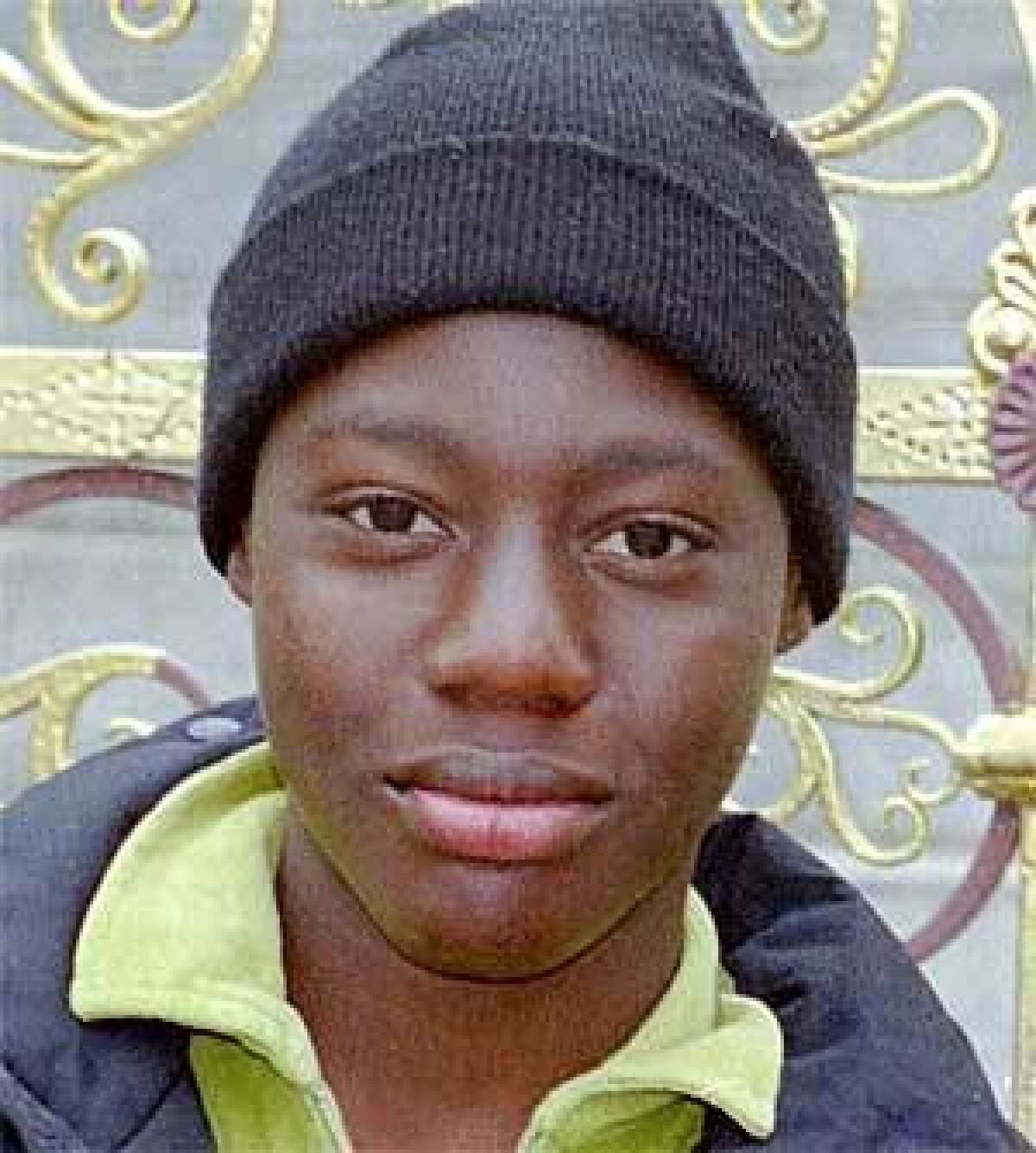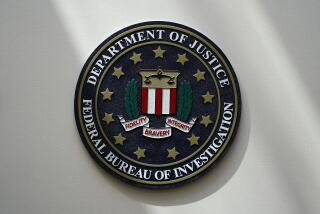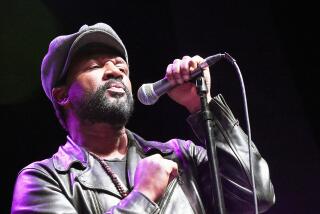U.S. learned intelligence on airline attack suspect while he was en route

Reporting from Washington — U.S. border security officials learned of the alleged extremist links of the suspect in the Christmas Day jetliner bombing attempt as he was airborne from Amsterdam to Detroit and had decided to question him when he landed, officials disclosed Wednesday.
The new information shows that border enforcement officials discovered the suspected extremist ties involving the Nigerian, Umar Farouk Abdulmutallab, in a database despite intelligence failures that have been criticized by President Obama.
“The people in Detroit were prepared to look at him in secondary inspection,” a senior law enforcement official said. “The decision had been made. The [database] had picked up the State Department concern about this guy -- that this guy may have been involved with extremist elements in Yemen.”
If the intelligence had been detected sooner, it could have resulted in the interrogation and search of Abdulmutallab at the airport in Amsterdam, according to senior law enforcement officials, all of whom requested anonymity because of the sensitivity of the case.
“They could have made the decision on whether to stop him from getting on the plane,” the senior law enforcement official said.
But an administration official said late Wednesday that the information would not have resulted in further scrutiny before the suspect departed. Abdulmutallab was in a database containing half a million names of people with suspected extremist links but who are not considered threats. Therefore, border security officials would have sought only to question him upon arrival in the U.S., the administration official said.
Nonetheless, the disclosure shows the complexity of the intelligence and passenger screening systems that are the subject of comprehensive reviews that the administration will release today.
The threshold for requiring a foreign visitor to undergo special scrutiny upon arrival in the U.S. is considerably lower than criteria for stopping a passenger’s departure overseas, according to current and former law enforcement officials. That is why border security agencies rely heavily on terrorism watch lists of suspects seen as urgent threats, officials said.
“The public isn’t aware how many people are allowed to travel through the U.S., who are linked, who intersect with bad guys or alleged bad guys,” a national security official said. “It makes sense from an intelligence perspective. If they are not considered dangerous, it provides intelligence on where they go, who they meet with.”
Moreover, the window for identifying a passenger overseas as a potential threat is limited, a senior homeland security official said.
U.S. border enforcement officials have access to passenger data based on lists of those who have made flight reservations. But the in-depth vetting only begins once a comprehensive list, known as a flight manifest, has been generated, just a few hours before takeoff, the homeland security official said.
Customs and Border Protection personnel based at the National Targeting Center in Washington came across the intelligence about Abdulmutallab -- which was based on a tip from the suspect’s father to U.S. Embassy officials in Nigeria -- during an in-depth review of the manifest after the plane was en route to Detroit, the other law enforcement officials said.
The administration’s review of screening procedures now underway includes an effort to make more information accessible to inspectors further in advance of flights, the senior law enforcement official said. The sheer number of passengers who must be screened and the potential slowdown for air travel posed by more scrutiny remains an impediment, however, officials said.
In contrast, once foreign visitors arrive in the U.S., border inspectors armed with additional screening data can refer them to secondary inspection, which involves more extensive questioning and searches, for reasons including suspected immigration problems or criminal activity.
Customs and Border Protection spokesmen declined to comment because the investigation is still open.
Abdulmutallab, after flying in from Nigeria, boarded the nine-hour flight to Detroit at Schiphol Airport in Amsterdam, one of nine airports around the world where foreign governments permit the presence of U.S. Customs and Border Protection officials in an advisory capacity.
The U.S. border officials work with foreign counterparts and Washington-based American officials to compare passenger lists to law enforcement and intelligence databases. The Americans can ask foreign law enforcement officials to conduct interrogations and searches of passengers who are not U.S. citizens or residents and, in rare instances, question passengers themselves, officials said.
Reservation lists that are generated a few days before flights allow some preliminary screening, officials said. But that information is limited by privacy laws, especially in Europe, and by the vagaries of reporting by airlines, so passenger manifests created with passport information once the flight is closed are a much stronger tool.
Homeland security officials declined to discuss what information reached the U.S. border officials in Amsterdam on Christmas Day or the actions of those officials related to Northwest Airlines Flight 253.
But they asserted that the likelihood of Abdulmutallab being intercepted in Amsterdam was low because he was not on the no-fly list, which contains about 4,000 names, or a separate terrorism watch “selectee” list that contains fewer than 20,000 names. Instead, the Nigerian was on the larger database.
The real breakdown came months before the flight because intelligence officials failed to match the father’s tip with intercepts about a suspected plot involving a Nigerian, a former senior homeland security official said.
“There was enough information in the system to make the guy a selectee or a no-fly without hoping for Customs and Border Protection to detect it at the last minute,” the official said.
The administration plans to release results today of its review of the Christmas Day plot, following a directive by Obama to make public a declassified version of the report he has received.
The report will be edited to remove information that might tell how the intelligence was gathered or who the sources were, administration officials said. The report is expected to present a clearer picture of how the intelligence system failed to detect the threat.
Then, for the second time in three days, Obama is planning to speak publicly about the matter. Counter-terrorism chief John Brennan and Homeland Security Secretary Janet Napolitano also may speak about the breakdown as early as today.
In Detroit on Wednesday, federal prosecutors filed a six-count indictment accusing Abdulmutallab, 23, of placing a destructive device on an aircraft, attempted use of a weapon of mass destruction and other charges that carry a penalty of up to life in prison.
Abdulmutallab was subdued by passengers and crew members on the plane after he allegedly attempted to detonate plastic explosives hidden in his underwear.
“This investigation is fast-paced, global and ongoing, and it has already yielded valuable intelligence that we will follow wherever it leads,” Atty. Gen. Eric H. Holder Jr. said. “Anyone we find responsible for this alleged attack will be brought to justice using every tool -- military or judicial -- available to our government.”
Abdulmutallab has provided valuable information to federal investigators about his dealings with extremists in Yemen, where he was allegedly trained and outfitted with the explosive device that was sewn into his underwear to avoid detection, according to U.S. law enforcement officials.
Abdulmutallab told interrogators that he met in Yemen with Anwar al Awlaki, a U.S.-born Yemeni cleric suspected of belonging to Al Qaeda, and who is also connected to the accused assailant in the November shootings at the Ft. Hood, Texas, Army base. Communications intercepts detected chatter about Awlaki’s role in a plot involving a Nigerian, U.S. officials have said.
The investigation has also uncovered communications between Abdulmutallab and Awlaki, a senior U.S. anti-terrorism official said Wednesday. The official did not specify whether those communications were via phone or Internet or whether they took place during the period that the Nigerian studied engineering in London, from 2005 to 2008.
“He was definitely in communication with Awlaki,” the senior anti-terrorism official said. “That’s been documented.”
British anti-terrorism officials said initially that Abdulmutallab was not identified as an extremist while a student at University College London. But there are increasing signs that he was active in a “radicalized group” while in London, the U.S. anti-terrorism official said.
Times staff writers Josh Meyer and Christi Parsons in Washington contributed to this report.
More to Read
Sign up for Essential California
The most important California stories and recommendations in your inbox every morning.
You may occasionally receive promotional content from the Los Angeles Times.










